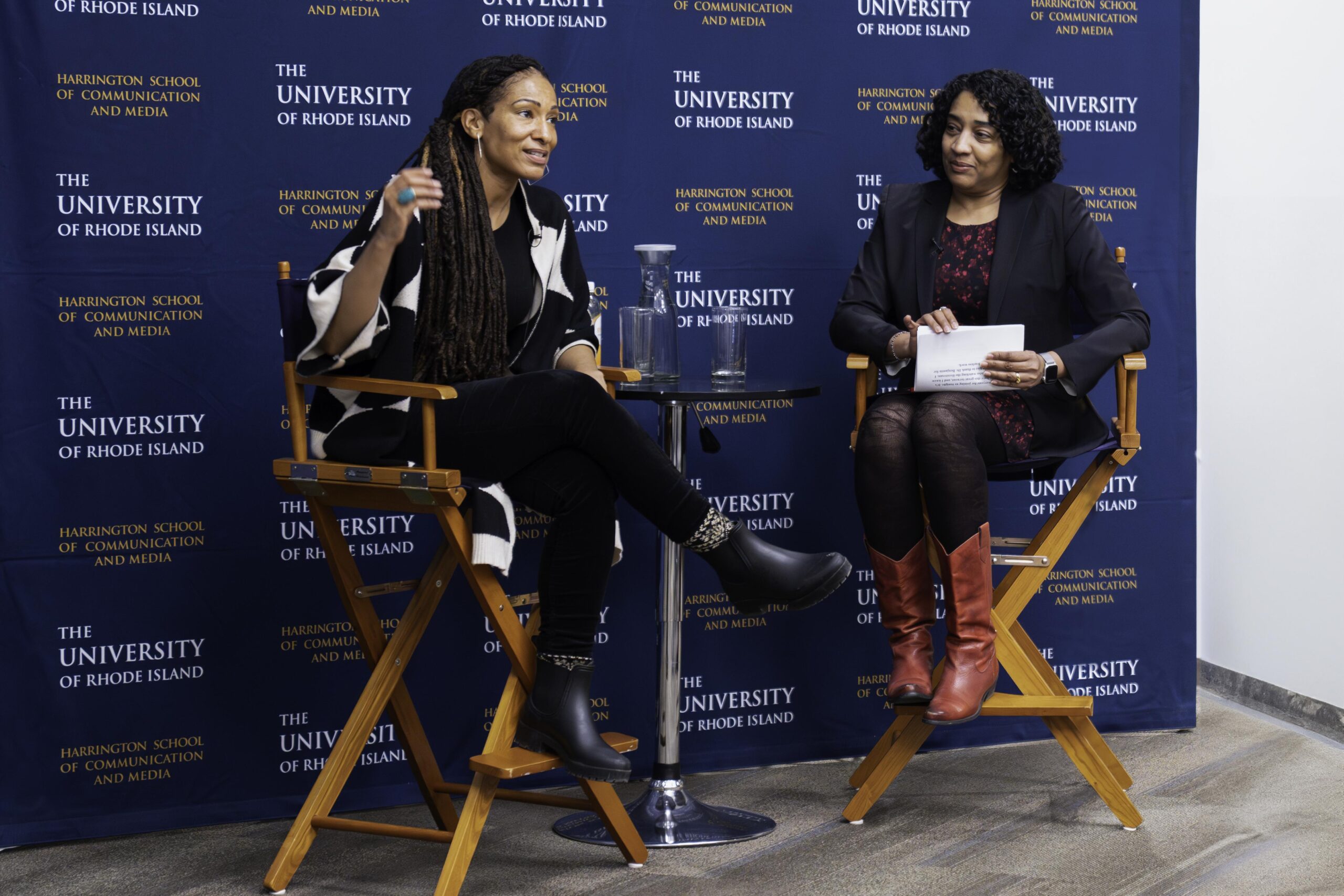Princeton professor Ruha Benjamin spoke on the importance of intersectionality in all aspects of technology with a focus on artificial intelligence at the University of Rhode Island on Thursday, Feb. 22.
The recent surge in the accessibility, strength and use of generative AI has caused concern and excitement alike among different sections of academia and the general public, Benjamin said. She also mentioned that the future of AI will be determined by us in the coming years.
The speech wasn’t just about AI – Benjamin also spoke on the importance of equity and inclusion in all disciplines of technology. She used multiple examples of technology design discrimination being visible in things as simple as park benches and as complex as the user interface of digital marketplaces.
On the front of AI, Benjamin said that the future is yet to be written. We are not destined for an AI utopia (a world in which AI is an objective benefit ) or for an AI dystopia (a world in which AI is an objective detriment). Benjamin referred to this as techno-deterministic logic.
“This assumption, that technology is in the driver’s seat propelled by a will of its own, impacts us,” Benjamin said. “But the humans behind the screen are missing from both of those scripts.”
Benjamin went on to mention how important our role is as voters, consumers and innovators to enact positive change in all areas of technology. Voting for politicians to write AI protection into law, buying products from ethical companies and coming up with integrative technologies are all ways to add the human element into the fabric of AI in order to assert public control over AI and technology as a whole.
A major concern of emerging technologies is built-in racism, Benjamin said. She gave examples such as facial recognition misidentifying colored faces and algorithms that give people of color lower test scores. In a similar vein to her point about techno-deterministic logic, she argued that racism is not part of human nature and does not need to be inherent in technology.
“These distortions are not inevitable,” Benjamin said. “They’re not immutable.”
The way we perceive and interact with inequalities and change cannot be looked at with a nihilistic lens, Benjamin said. Being proactive as human designers is something she wants all of us to do in good faith.
“If inequity is woven into the very fabric of society then each twist, coil and code is a chance for us to weave new patterns, practices and politics,” Benjamin said. “Its vastness will be its youth once we accept that we are pattern makers.”
The seminar concluded with a brief panel where Benjamin and Ammina Kothari, director of the Harrington School of Communications, fielded questions from the audience.
Journalism students and students taking HPR 124 (Welcome to Planet Honors) attended the event as advertised by their instructors. Another group in attendance were representatives from the numerous cosponsors of the event, representing different colleges of the University. Kothari organized the event and invited Benjamin to URI.
“I’m familiar with her work because my research also looks at implications of AI for journalism,” Kothari said. ”So I wanted to bring someone who can kind of help us think about this conversation in a more complex way.”
The Harrington School of Communication and Media is looking into the integration of AI into the curriculum, Kothari said. Bringing up AI conversion in classes and a potential AI course is in discussion.
“I think having a course that would actually spend a semester looking at this issue from different areas would be important for the students to not only understand the potential of generated AI but also implications both for communication and the media industry but also for consumers as well,” Kothari said.
As both a department director and a researcher, Kothari attempted to understand the impacts of AI and emerging technology in her field. In a broad philosophical lens, she said her disciplines intersect with consumer values.
“What is it that we want to consume? Do we want stories just generated by machines or wasted by humans, interviewing and asking questions and deciding what’s important,” Kothari said.
URI faculty are becoming more and more aware of the possibilities and dangers of AI, but are optimistic about career opportunities. With that in mind, the Harrington Career Fair is on Tuesday, at the Robert J. Higgins Welcome Center at 3 p.m, with internships, part-time and full-time jobs available.
For digital release you can subscribe to Benjamin’s newsletter here, https://www.ruhabenjamin.com/newsletter .

